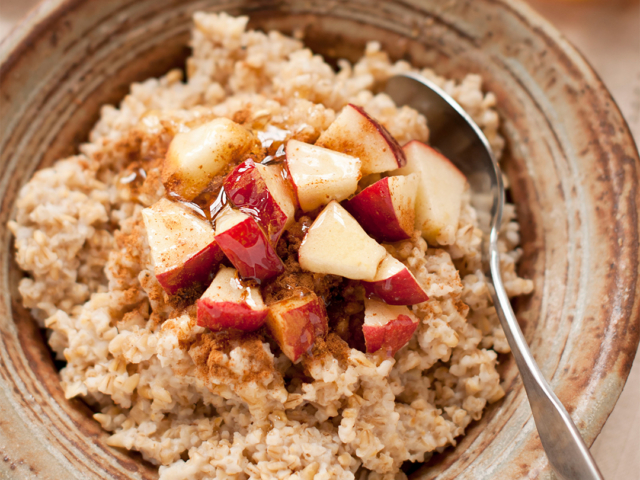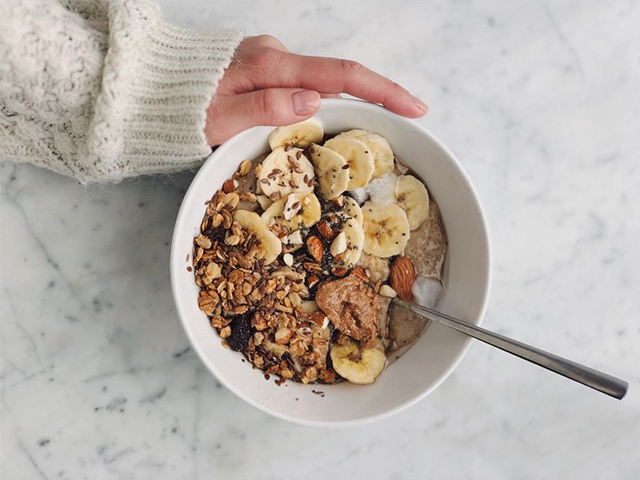
When it comes to achieving optimal wellness, one of the most powerful tools at our disposal is our daily food choices. What we eat has a direct impact on our energy levels, mood, cognitive function, and overall health. Adopting healthy eating habits is not just about following a temporary diet; it’s a long-term commitment to nourishing our bodies with wholesome, nutrient-dense foods. In this blog post, we will explore the importance of healthy eating habits, provide practical tips for incorporating them into your lifestyle, and discuss the numerous benefits they bring to your overall well-being.
The Foundation of Nutrient-Dense Foods:
Healthy eating habits revolve around consuming a wide variety of nutrient-dense foods that provide our bodies with the essential vitamins, minerals, and macronutrients they need to thrive. These include fruits, vegetables, whole grains, lean proteins, healthy fats, and legumes. Nutrient-dense foods are rich in antioxidants, fiber, and other bioactive compounds that support our immune system, promote healthy digestion, and reduce the risk of chronic diseases such as heart disease, diabetes, and certain cancers. By prioritizing these foods in our diet, we can fuel our bodies with the building blocks of health and vitality.
Mindful Eating and Portion Control:
In our fast-paced world, it’s easy to fall into mindless eating habits, consuming food quickly and without paying attention to our body’s hunger and fullness cues. Mindful eating is a practice that encourages us to slow down, savor each bite, and be fully present during meals. By cultivating mindfulness around our eating habits, we can better tune into our body’s signals of hunger and satiety, making it easier to maintain a healthy weight and prevent overeating. Additionally, portion control plays a crucial role in healthy eating habits. It’s important to listen to our body’s signals and eat until we are comfortably satisfied, rather than overly full. Portion control allows us to strike a balance between nourishing our bodies and avoiding excessive calorie intake.
Hydration and the Importance of Water:
Proper hydration is a fundamental aspect of healthy eating habits. Water plays a vital role in numerous bodily functions, including digestion, nutrient absorption, circulation, and temperature regulation. Drinking an adequate amount of water throughout the day helps prevent dehydration, supports optimal organ function, and promotes healthy skin. Aim to drink at least eight glasses of water per day, and increase your intake if you are physically active or in hot weather. In addition to water, herbal teas, and infusions can also contribute to your overall hydration.

Meal Planning and Preparation:
To establish and maintain healthy eating habits, it’s essential to plan and prepare your meals in advance. Meal planning allows you to make intentional choices about the foods you consume, ensuring that you have a well-balanced and nutritious diet. Start by creating a weekly meal plan, taking into account your dietary preferences, nutritional needs, and schedule. This will help you make healthier choices, avoid relying on convenient but less nutritious options, and reduce the temptation to indulge in unhealthy snacks or fast food. Set aside dedicated time each week for grocery shopping and meal preparation, which will save you time and stress in the long run.
The Role of Mindset and Enjoyment:
Healthy eating habits should not be viewed as restrictive or burdensome. Instead, cultivate a positive mindset and approach your meals with a sense of enjoyment and gratitude. Embrace the opportunity to explore new flavors, experiment with different recipes, and savor the natural tastes and textures of whole foods. Allow yourself occasional indulgences and treats, practicing moderation rather than deprivation. Remember, healthy eating is a lifestyle, and finding joy in nourishing your body will make it a sustainable and fulfilling journey.
The Impact on Mental and Emotional Health:
Healthy eating habits not only benefit our physical health but also have a significant impact on our mental and emotional well-being. Research has shown that a balanced diet rich in fruits, vegetables, whole grains, and lean proteins is associated with a lower risk of depression, anxiety, and other mental health disorders. These nutrient-dense foods provide the necessary nutrients, such as omega-3 fatty acids, B vitamins, and antioxidants, that support brain function and mood regulation. On the other hand, a diet high in processed foods, sugars, and unhealthy fats has been linked to an increased risk of mental health issues. By fueling our bodies with wholesome foods, we can nourish our minds and enhance our emotional resilience.
Increased Energy and Vitality:
Have you ever experienced the mid-afternoon slump or felt sluggish throughout the day? Poor eating habits, such as consuming sugary snacks or processed foods, can lead to energy crashes and decreased productivity. In contrast, healthy eating habits provide a steady source of energy to fuel our daily activities. Nutrient-dense foods, particularly complex carbohydrates, and lean proteins help stabilize blood sugar levels, providing sustained energy throughout the day. By adopting healthy eating habits, you can experience increased vitality, improved focus, and enhanced productivity in your daily life.
Long-Term Disease Prevention:
One of the most significant benefits of healthy eating habits is their role in preventing chronic diseases. Many common health conditions, including heart disease, type 2 diabetes, and certain cancers, are closely linked to diet and lifestyle factors. By making conscious choices to consume nutritious foods, we can reduce our risk of developing these diseases and promote long-term health. A diet rich in fruits, vegetables, whole grains, and lean proteins provides essential nutrients and antioxidants that support a healthy immune system, reduce inflammation, and protect against cellular damage. By taking care of our bodies through healthy eating, we empower ourselves to lead longer, healthier lives.
Adopting healthy eating habits from Bible Keeper is a powerful investment in your overall well-being. By prioritizing nutrient-dense foods, practicing mindful eating, staying hydrated, and planning your meals, you can fuel your body for optimal health and vitality. Embrace the journey of discovering new flavors, experimenting with recipes, and savoring the nourishment that comes from wholesome foods. Remember, healthy eating is not about perfection; it’s about progress and making choices that support your long-term wellness. Start small, be consistent, and celebrate the positive changes you make on your path to a healthier, happier you.
